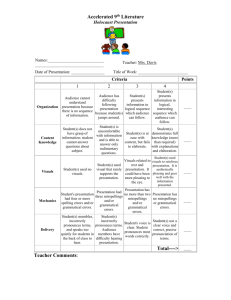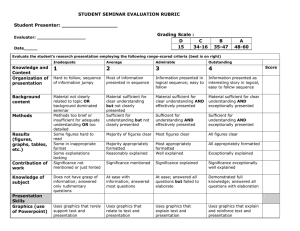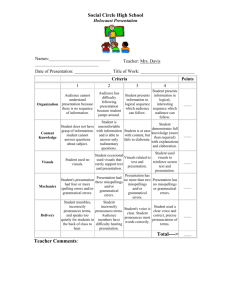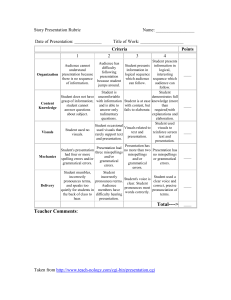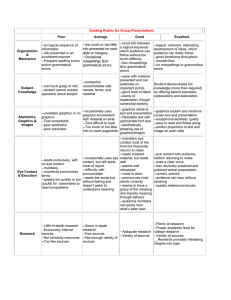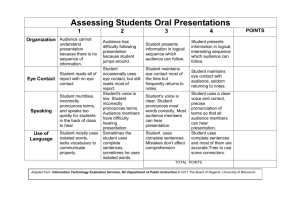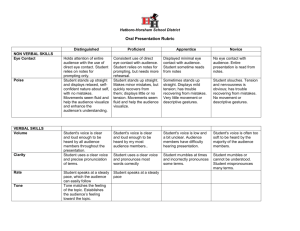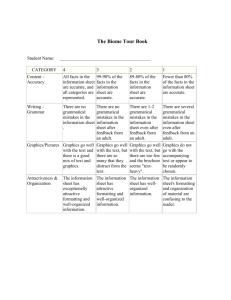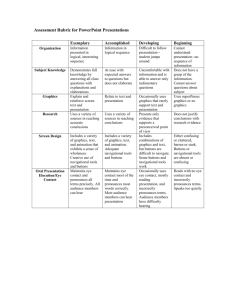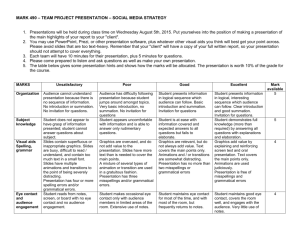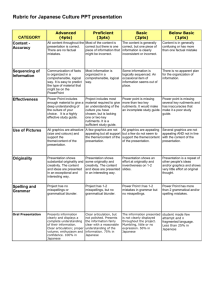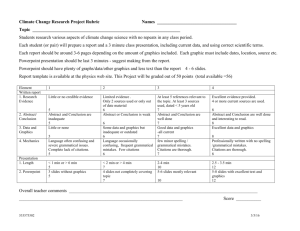Presentation Rubric: Evaluating Student Work
advertisement
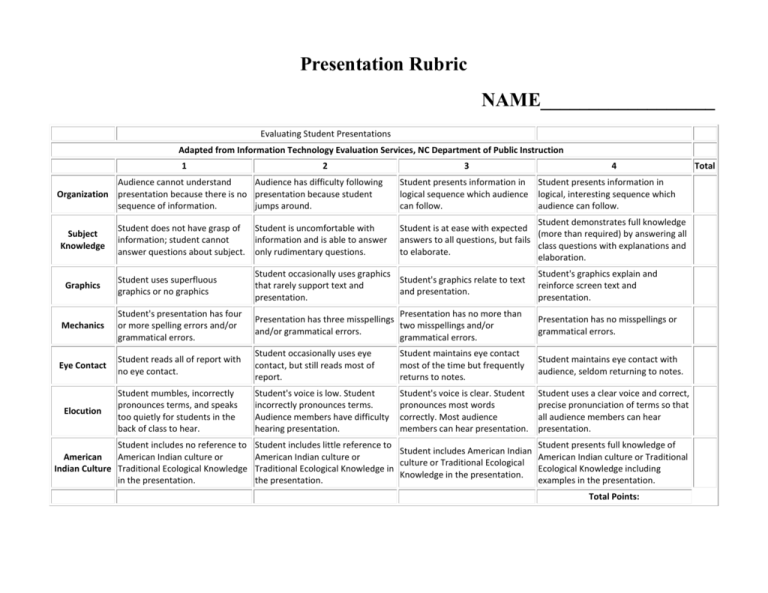
Presentation Rubric NAME__________________ Evaluating Student Presentations Adapted from Information Technology Evaluation Services, NC Department of Public Instruction 1 2 Audience cannot understand Audience has difficulty following Organization presentation because there is no presentation because student sequence of information. jumps around. 3 Student presents information in logical sequence which audience can follow. 4 Student presents information in logical, interesting sequence which audience can follow. Student demonstrates full knowledge Student is at ease with expected (more than required) by answering all answers to all questions, but fails class questions with explanations and to elaborate. elaboration. Student does not have grasp of information; student cannot answer questions about subject. Student is uncomfortable with information and is able to answer only rudimentary questions. Student uses superfluous graphics or no graphics Student occasionally uses graphics Student's graphics relate to text that rarely support text and and presentation. presentation. Student's graphics explain and reinforce screen text and presentation. Mechanics Student's presentation has four or more spelling errors and/or grammatical errors. Presentation has no more than Presentation has three misspellings two misspellings and/or and/or grammatical errors. grammatical errors. Presentation has no misspellings or grammatical errors. Eye Contact Student reads all of report with no eye contact. Student occasionally uses eye contact, but still reads most of report. Student maintains eye contact most of the time but frequently returns to notes. Student maintains eye contact with audience, seldom returning to notes. Elocution Student mumbles, incorrectly pronounces terms, and speaks too quietly for students in the back of class to hear. Student's voice is low. Student incorrectly pronounces terms. Audience members have difficulty hearing presentation. Student's voice is clear. Student pronounces most words correctly. Most audience members can hear presentation. Student uses a clear voice and correct, precise pronunciation of terms so that all audience members can hear presentation. Subject Knowledge Graphics Student includes no reference to American American Indian culture or Indian Culture Traditional Ecological Knowledge in the presentation. Student includes little reference to Student includes American Indian American Indian culture or culture or Traditional Ecological Traditional Ecological Knowledge in Knowledge in the presentation. the presentation. Student presents full knowledge of American Indian culture or Traditional Ecological Knowledge including examples in the presentation. Total Points: Total
